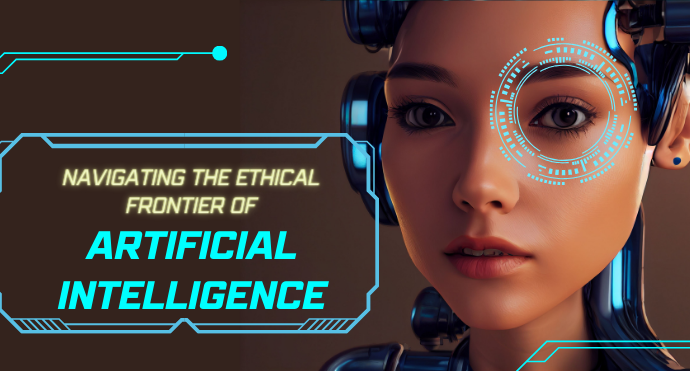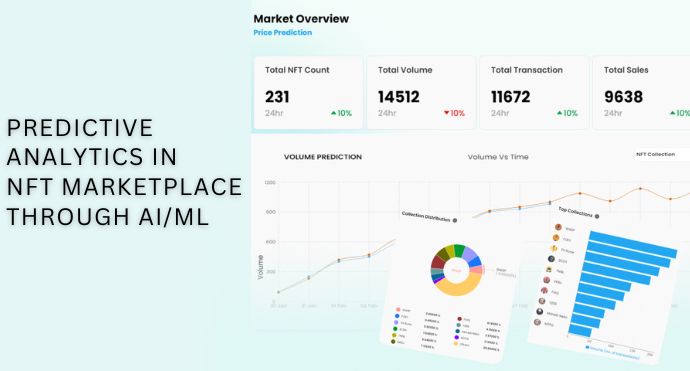In today’s rapidly evolving landscape, the journey of artificial intelligence (AI) is nothing short of astonishing. It brings forth a world of possibilities that can transform our lives for the better. But it also carries the potential for peril if we do not tread carefully and responsibly. As AI continues to shape our society, there is an undeniable ethical imperative that we must uphold.
The Dangers of Irresponsible AI
While AI holds promise in fields like healthcare, transportation, and education, it also harbors dark shadows. We must acknowledge the legitimate concerns surrounding AI, including biased algorithms that perpetuate discrimination, invasive surveillance that tramples on privacy, and autonomous weapons that remove human control from lethal decisions. These concerns underscore the urgent need for ethical AI development.
Championing Responsible and Ethical AI
The onus falls on technology leaders to champion ethics throughout the AI development process. This involves establishing ethics boards, conducting rigorous algorithmic audits to root out biases, and engaging with stakeholders from affected groups to understand their concerns. The aim is clear: AI should be designed not to replace human oversight and accountability but to augment human capabilities and enhance well-being.
The Call for AI Regulation and Governance
While ethical considerations are crucial, relying solely on voluntary ethical principles has limitations. Laws and policies must evolve to keep pace with technological advancements. Governments should introduce regulations, auditing mechanisms, and certification policies to ensure that AI adheres to the highest ethical standards. Developers should be held accountable when their creations cause harm.
Placing Humanity at the Center
Ultimately, achieving responsible AI hinges on centering human values and society’s interests. These values encompass privacy, psychological safety, justice, and autonomy. AI companies should conduct comprehensive impact assessments, considering the far-reaching societal implications of their creations. Ethical AI emerges from a commitment to science in the service of shared human values rather than the pursuit of private interests alone.
The Way Forward
The path forward demands thoughtful leadership within AI companies, unwavering integrity among researchers, vigilance from users, and guidance from governments. When wielded wisely, AI has the power to empower society in unimaginable ways. But unethical AI, disconnected from human values, risks eroding public trust and causing widespread harm. Therefore, a collective commitment to ethics and the common good is not just a choice; it’s an imperative.
As AI continues to weave itself into the fabric of our lives, let us remember that it carries the potential to shape a brighter future. And it’s our responsibility to ensure that this future is one built upon ethics, empathy, and the shared values that make us human.
Conclusion: Embracing the Ethical Horizon of AI
In this era of rapid technological progress, the allure of artificial intelligence is undeniable. Its potential to transform our world for the better is breathtaking. However, the ethical imperative that accompanies this journey cannot be overstated. As AI becomes an integral part of our lives, it is our duty to guide its development responsibly and ethically.
The dangers of irresponsible AI are real. Biased algorithms that perpetuate discrimination, invasive surveillance that infringes upon our privacy, and autonomous weapons that relinquish human control over life-and-death decisions are stark reminders of the risks we face. To counter these risks, we must champion ethical AI.
Technology leaders bear a significant responsibility in this endeavor. They must establish ethics boards, conduct thorough audits of algorithms, and actively engage with stakeholders to understand their concerns. AI should be a force that enhances human capabilities, not one that replaces human oversight and accountability.
Moreover, while ethics is pivotal, it cannot stand alone. Laws and policies must evolve to regulate AI, ensuring it adheres to the highest ethical standards. Accountability for developers when AI causes harm must be a cornerstone of this framework.
At its core, responsible AI demands that we center human values and societal interests. Privacy, psychological safety, justice, and autonomy are not negotiable. AI companies must conduct comprehensive impact assessments to understand the broader societal implications of their creations. Ethical AI is a testament to our commitment to science in service of shared human values, transcending individual interests.
The road ahead is challenging but navigable. It requires strong leadership within AI companies, unwavering research integrity, vigilant users, and thoughtful governmental guidance. With wise implementation, AI can indeed empower society. However, unethical AI that disregards human values threatens to undermine public trust and cause widespread harm.
In this journey, our collective commitment to ethics and the common good is not just essential; it’s the linchpin that holds our technological progress together. As AI continues to weave itself into our lives, let us ensure that it does so with the threads of ethics, empathy, and shared values, weaving a future that we can proudly call our own.




thank for dropping this story. I am definitely tired of struggling to find relevant and intelligent commentary on this subject. Everyone nowadays seem to go to extremes to either drive home their viewpoint or suggest that everybody else in the globe is wrong. thank for your concise and relevant insight.
I haven’t checked in here for some time as I thought it was getting boring, but the last few posts are good quality so I guess I’ll add you back to my daily bloglist. You deserve it friend
Hello there, just became aware of your blog through Google, and found that it is really informative. I¡¦m gonna watch out for brussels. I will appreciate if you continue this in future. A lot of people will be benefited from your writing. Cheers!
I truly prize your piece of work, Great post.
Wohh exactly what I was searching for, regards for putting up.
Hello! I just want to supply a massive thumbs up with the excellent information you have here for this post. I’ll be coming back to your blog site for more soon.
I discovered your blog site on bing and appearance several of your early posts. Maintain within the very good operate. I merely extra increase RSS feed to my MSN News Reader. Looking for toward reading much more of your stuff at a later date!…
This is very interesting, You’re a very skilled blogger. I have joined your feed and look forward to more of your magnificent post. Also, I’ve shared your website in my social networks!
I am usually to blogging and i also actually appreciate your content. The article has truly peaks my interest. I am going to bookmark your blog and keep checking for first time info.
Identified a person website by way of yahoo I need to state We michael impressed along with your posts!
This is a nice blog i must say, usually i don????t post comments on others???? blogs but would like to say that this post really forced me to do so!
I discovered your site web site on google and appearance a number of your early posts. Always maintain the really good operate. I merely extra increase RSS feed to my MSN News Reader. Looking for forward to reading a lot more from you afterwards!…
you are definitely a very good webmaster. The web site loading speed is incredible. It seems that you are doing any unique trick. Moreover, The contents are masterwork. you’ve completed a great job on this topic!
Thanks for a very interesting web site. Where else may I get that kind of info written in such a perfect method? I have a undertaking that I’m simply now operating on, and I have been on the look out for such information.